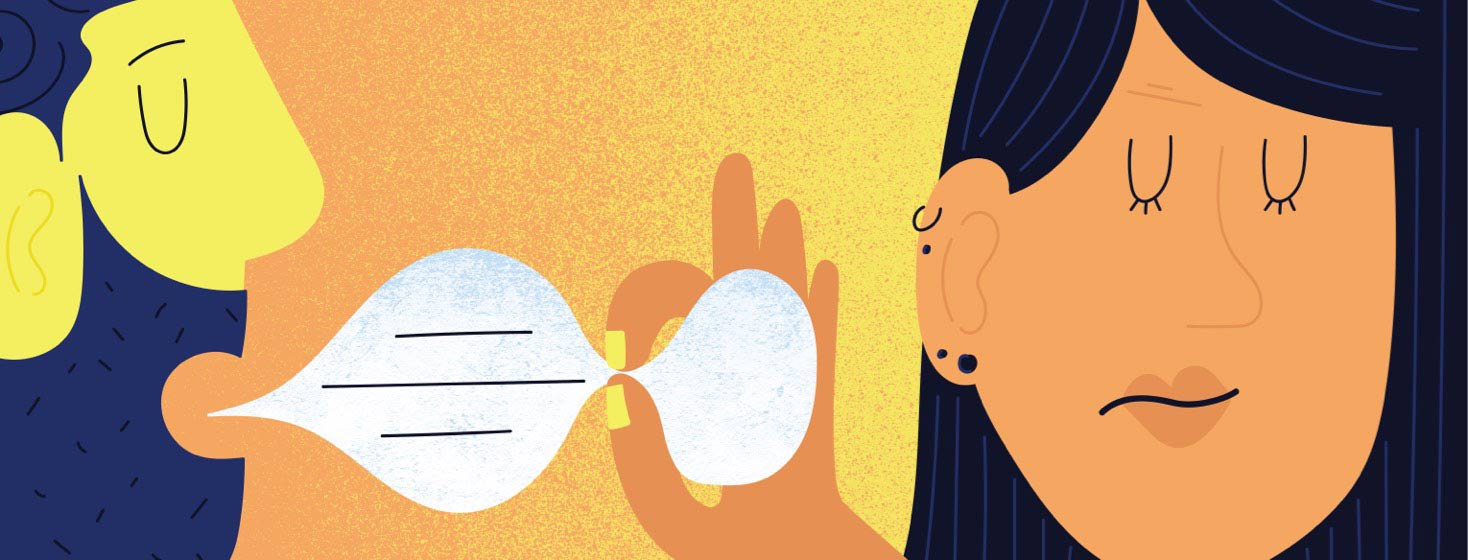Are You Even Listening?
My MS flips the script and tolerates heat much better than cold. I, therefore, spend a lot of time outdoors during the summer months, and this year was no different. I've found hiking and biking to be a combo my body tolerates well. It seems to run in the family, so a few family members and I biked to a scenic nature reserve a few weeks back to hike.
Young and healthy?
As MS would have it, close to the end of the trek, my body abruptly and unexpectedly ran out of juice. I was fatigued, the bag I was carrying felt heavier, and I couldn't wait to get home and sleep for 14 hours straight. I slowed my pace and went silent, which I tend to do when fatigue hits. As we were getting close to the parking lot to take our bikes back to my place, a family member remarked that I was "young and healthy". I can withstand much more than these older geezers around us! I reminded them that while being of the tender age of 29, I am somewhat fit but not healthy. "So add some years to that equation of yours," I said, more defiantly than I expected. I was surprised by the defensiveness in my tone.
Understanding emotional triggers
I spent most of the next day thinking about what had triggered me about the comment from my family member. It was well-intentioned, and even by my standards, not inaccurate. Maybe I had been somewhat unreasonable? Part of it definitely was unreasonable, but I forgave myself. The frustration of being hit by fatigue while being told I'm "young and healthy" was a juxtaposition that threw me off balance. But I also found an angry, frustrated, and outward acting part of me that I didn't understand. The comment in the woods shone a floodlight onto a painful thing I would rather keep in the dark.
Didn't they hear me?
MS being the invisible disease it tends to be, I understand that it's not on the top of everyone's mind the way it is for me. I can still do most of what I could before my diagnosis. And yet, when I was called young and healthy, I had to dig deep to understand why it made me sad. Isn't that what I want people to think about me? I am young, and I don't consider myself a sick person because I have MS. So what's the big deal? The deal: that's not what I have told them.
Explaining MS to others
I know most people don't see me and think, "Fredric, the one with MS," and I'm grateful for that. But when it comes to friends and family, my expectations are higher because I share more about my MS. They know more of the things I worry about, the mental health problems, what symptoms are affecting my life, the diagnosis story, the ups, the downs, the failures, the fears, the medications, the risks. I share it with them because I care, and I know they care about me. Because it's a lot to take in, I repeat and explain the information often to the people close to me.
Less-than-ideal responses
But let's say you're allergic to dogs, but your friends keep bringing their dog over when they visit you. You have to remind them or call them in advance to leave the dog outside. That's how I sometimes feel about my MS. When I share my worries about where my MS will be in 15 years: "There will be a cure by then, don't worry!" Or when I complain about my legs being spastic: "Have you tried stretching?". Or they recommend a weekend activity I've already had to turn down three times because of my limitations. Eventually, I have to ask myself whether those comments are less about my reality and more about their comfort.
How much can we expect from others?
Where is the line between asking for what you need and being unappreciative? Is it enough to always mean well but disregard the more significant, more complex conversations? How much responsibility does the person with MS hold over holding the conversation? I struggle with these questions a lot and often negate my hurt because I know people mean well. It's human to forget. But again, where is the line?
Expectations of myself and others
Back in the woods, this is what brought about the then unexplainable sadness and defiance. I wish that at that moment, they would have noticed my slower pace and sudden silence and asked, "How do your legs feel?", "Is your body feeling alright?" or even just "I'm glad we are doing this together." Or is it my responsibility to tell others, despite all of the years of explaining how my "new body" works? Am I expecting too much of myself or others? Of both?
Finding the balance
There needs to be both gratefulness for the good intentions and expectations to be heard. But it also has to be okay to be sad and disappointed when you feel like, despite your best efforts, you are alone. You have to allow things to slip but also expect certain things to be remembered and considered. To find that balance is complicated. I'm hoping I'm not alone in this situation, and I'd love to hear about your experience. It's a vulnerable space that I want to stay in, and I'm grateful that you spent a few minutes here with me.

Join the conversation